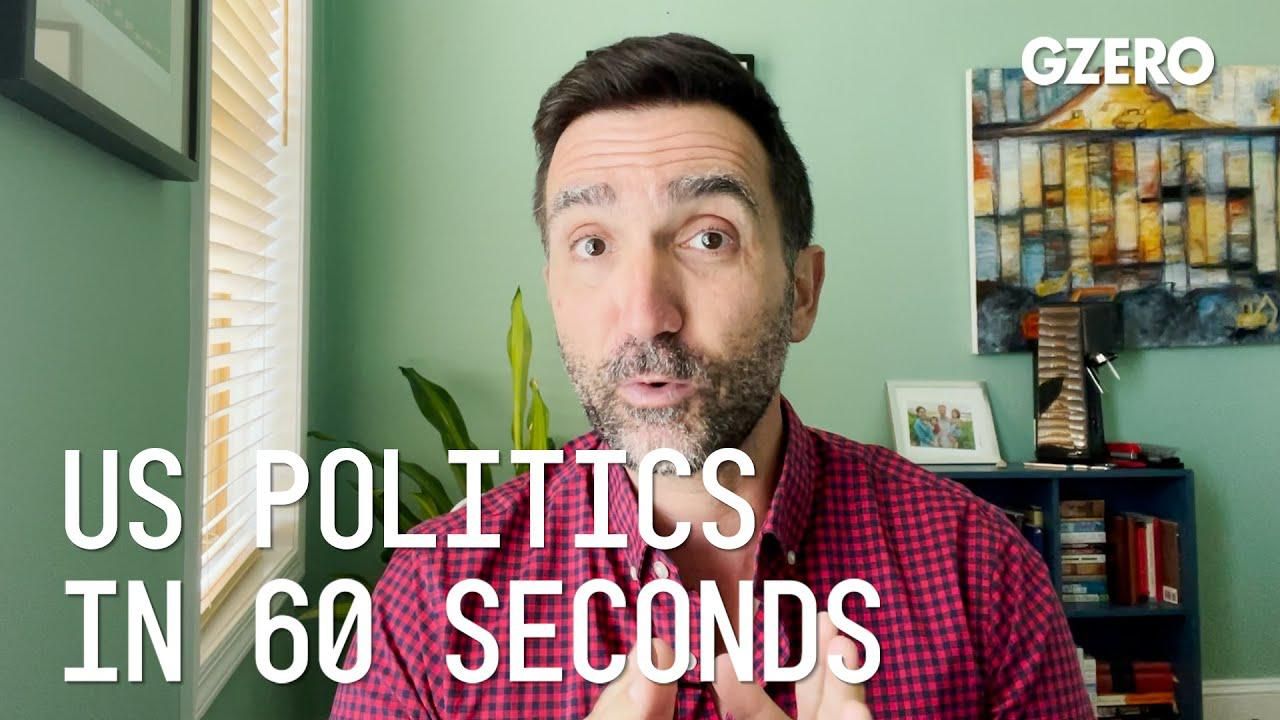US Politics In 60 Seconds
Kabul attack poses political risks for Biden

Kabul Attack Poses Political Risks for Biden | US Politics In :60 | GZERO Media

Get insights on the latest news in US politics from Jon Lieber, head of Eurasia Group's coverage of political and policy developments in Washington:
How will the Kabul airport attack influence the US evacuations?
Well, so far it looks like President Biden is on track to keep the August 31st deadline for evacuating, for finishing evacuations and leaving Afghanistan fully. However, there's still somewhere in the range of about a thousand American citizens, plus potentially tens of thousands of special immigrant visa holders who are Afghani citizens that helped the United States, that could potentially be left behind because of this expedited withdrawal schedule. This is a real risk for Biden.
On the one hand, if he decides to double down on getting every single American out, he's going to have to commit more troops to going back into Afghanistan. And that potentially exposes them to the risk of further attacks from ISIS or other hostile forces inside Afghanistan. If, on the other hand, he does, in fact, stick to this August 31st deadline, these Americans that are left behind could become potential years' worth of propaganda victories for terrorists acting inside Afghanistan, which over time would compound to be a major domestic weakness for President Biden.
So he's really left with a set of bad options here. And long-term risk to Biden is that the American people start to see what happened in Afghanistan and see incompetence across the federal government, which could be a real drag for him personally and also for Democrats in next year's midterm elections. It probably results in a rally 'round the flag effect whereby Democrats are eager, more eager, even more eager than they are today to push forward legislation such as the $3.5 trillion spending bill that they're trying to do. And it also probably makes Biden a little bit more risk averse, unwilling to deal with controversial social issues at the risk of alienating independents. But this is going to be a major story, even though the American people largely support the evacuation of Afghanistan and the ending of the war, images from Afghanistan and images of the Americans left behind could potentially haunt Biden for the rest of his presidency.
In this Quick Take, Ian Bremmer addresses the killing of Alex Pretti at a protest in Minneapolis, calling it “a tipping point” in America’s increasingly volatile politics.
Who decides the boundaries for artificial intelligence, and how do governments ensure public trust? Speaking at the 2026 World Economic Forum in Davos, Arancha González Laya, Dean of the Paris School of International Affairs and former Foreign Minister of Spain, emphasized the importance of clear regulations to maintain trust in technology.
Will AI change the balance of power in the world? At the 2026 World Economic Forum in Davos, Ian Bremmer addresses how artificial intelligence could redefine global politics, human behavior, and societal stability.
Ian Bremmer sits down with Finland’s President Alexander Stubb and the IMF’s Kristalina Georgieva on the sidelines of the World Economic Forum to discuss President Trump’s Greenland threats, the state of the global economy, and the future of the transatlantic relationship.